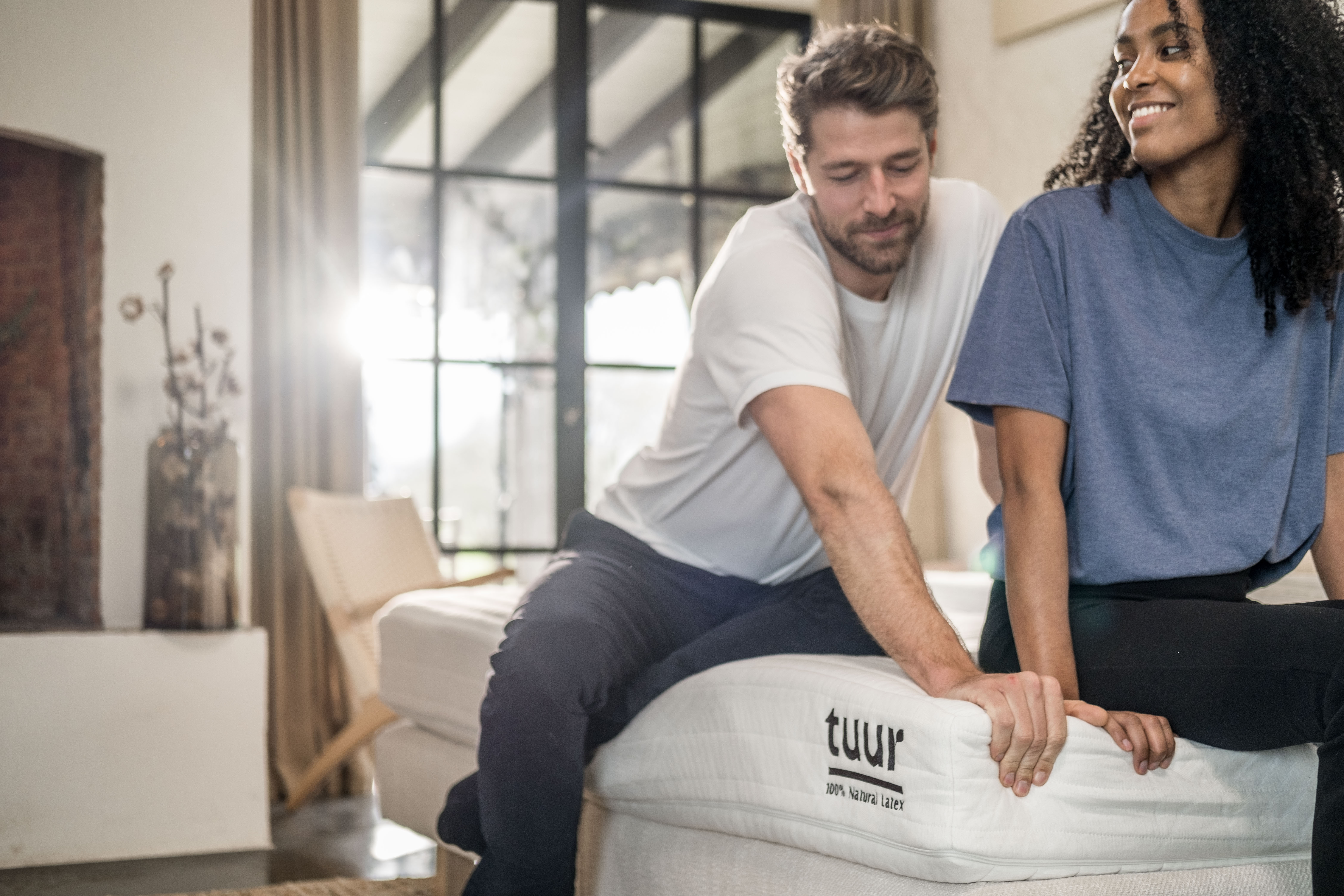Athletes and sleep: improve your performance with better rest
Good sleep is essential for athletes. Whether you're a casual jogger or a professional athlete, your night's rest directly impacts your muscle recovery, mental focus, and performance. In this article, you'll learn why sleep is crucial to your training routine and how the right sleep environment helps you get the most out of yourself.

Why sleep is essential for athletes
When you exercise, you put a lot of strain on your body. Muscles are taxed, minor tissue damage occurs, and your energy reserves are used. Your body needs rest to recover, and that rest mainly happens during sleep.
In deep sleep, growth hormone is released: vital for muscle building and tissue repair. At the same time, your immune system is activated, which helps reduce inflammation and speeds up recovery. Poor or short sleep, on the other hand, increases the risk of fatigue, overtraining, and injury.
A high-quality mattress that supports your body optimally can make a real difference. The Tuur® Original Mattress is specially developed to provide natural support and ventilation, helping your body recover to the fullest at night.
Mental sharpness starts with rest
Sports are about more than just physical endurance, they also require mental focus. Think of reaction time, coordination, and the ability to make the right decision in a split second. All these functions are directly influenced by sleep. If you don’t get enough sleep, you’ll notice:
- Your reaction time slows down
- Your concentration decreases, leading to errors and lack of focus
- Your motivation drops, affecting your training discipline
A good night's sleep benefits both body and mind. The Tuur® Pillow keeps your neck and head in the right position so you sleep deeper and more restoratively, and perform sharper and more alert during the day.
A good sleep routine for athletes
A fixed sleep routine is just as important as training and nutrition. Regularity helps stabilize your biological clock, leading to better sleep quality and recovery. Try to go to bed and wake up at the same time every day, even on weekends.
Avoid screens before bedtime, opt for relaxing activities, and make sure your sleep environment is calming. Also pay attention to the physical setup of your bedroom: keep it cool, quiet, and dark. Choose breathable, natural materials for your mattress and bedding to avoid overheating and restless nights.
Why choose an ergonomic sleep surface?
An ergonomic mattress and pillow keep your body in the right position during the night. This has several benefits:
- It reduces pressure points and ensures even weight distribution
- It supports the natural curve of your spine
- It helps your muscles fully relax during the night
Natural materials ensure a fresh and well-ventilated sleeping climate The Tuur® Original Mattress and the Tuur® Pillow together create a sleep environment that combines recovery, comfort, and sustainability.
Frequently asked questions about sports and sleep
How many hours should an athlete sleep per night?
As an athlete, you typically need between eight and ten hours of sleep per night. This depends on factors like your age, the intensity of your training, and your overall physical load. During deep sleep, your body recovers intensively: muscles are built, the immune system is strengthened, and mental fatigue is reduced.
What is the best mattress for athletes?
The best mattress for athletes supports your body ergonomically and also ensures proper ventilation and temperature control. During sleep, it’s important that pressure points, such as shoulders, hips, and lower back, are properly relieved so your body can fully relax. The Tuur® Original Mattress combines natural materials with ergonomic zones tailored to your body’s contours.
Does poor sleep really affect performance?
Absolutely. Poor or interrupted sleep can lead to a wide range of negative effects, both physical and mental. Disturbed sleep reduces your muscles’ ability to recover, lowers the production of key hormones like testosterone and growth hormone, and impairs your cognitive functions.
